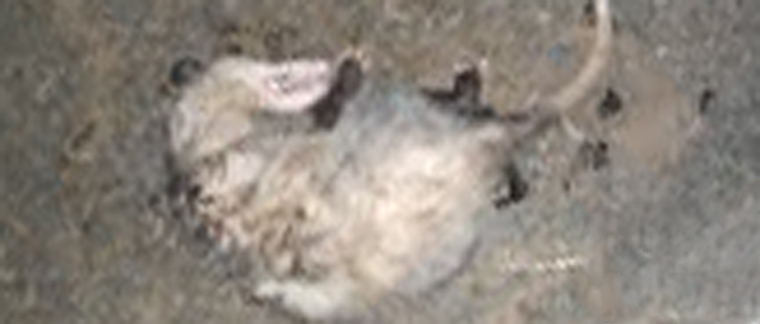-
info@aaanimalcontrol.com
Call us for help in your town
Humane Wildlife Education
Why Do Opossums Play Dead?
Need opossum removal in your hometown? We service over 500 USA locations! Click here to hire us in your town and check prices - updated for year 2020.
There are many situations in which people and animals have successfully played dead when they are in danger or when there is a predator about, but one of the most interesting species to do this is the opossum. The main difference between this reaction in opossums and in other animals is that it is involuntary in opossums, and they have evolved to respond to some dangerous situations with this reaction. This is one part of a greater range of defense mechanisms the animal can use, and the effect is remarkably accurate and it can be hard to tell if an opossum is dead or simply playing dead.

Self Protection
The main reason that opossums will use this reaction is that it is a method of self protection that will baffle many predators and other animals that are a threat to the opossum. The reason that this can be effective is that many of the animals that would attack an opossum are predators that will only eat other animals they have killed themselves, so an opossum playing dead would not be a real target. When this is combined with the foul smell emitted from the opossum's glands, the opossum playing dead certainly does not make an attractive meal.
How This Natural Reaction Works
The most important thing to note with this reaction of 'playing possum' is that it is not something that the animal does consciously, rather it is an instinctive reaction that does not always happen at an appropriate time. When it is playing dead, saliva foams around the mouth and the teeth are bared, with the eyes half closed and the fluid emitted from the anal glands providing a deeply unpleasant smell.
Recovery From Playing Dead
Opossums that are playing dead can actually spend quite some time before they recover, and this will usually be enough time to allow the predator or the threat that they were afraid of to have moved on and found another target. In some cases it can happen as quickly as forty minutes after the animal experienced reaction, while in other cases it can take up to four hours, and for observers the first sign the opossum is starting to wake up is a twitching of the ears. While it is unconscious, the body of the opossum can be prodded, moved or even rolled over without the animal showing any sign of regaining consciousness.
For more information, you may want to click on one of these guides that I wrote:
How much does opossum removal cost? - get the lowdown on prices.
How to get rid of opossums - my main opossum removal info guide.
Example opossum trapping photographs - get do-it-yourself ideas.
Opossum job blog - learn from great examples of opossum jobs I've done.


















